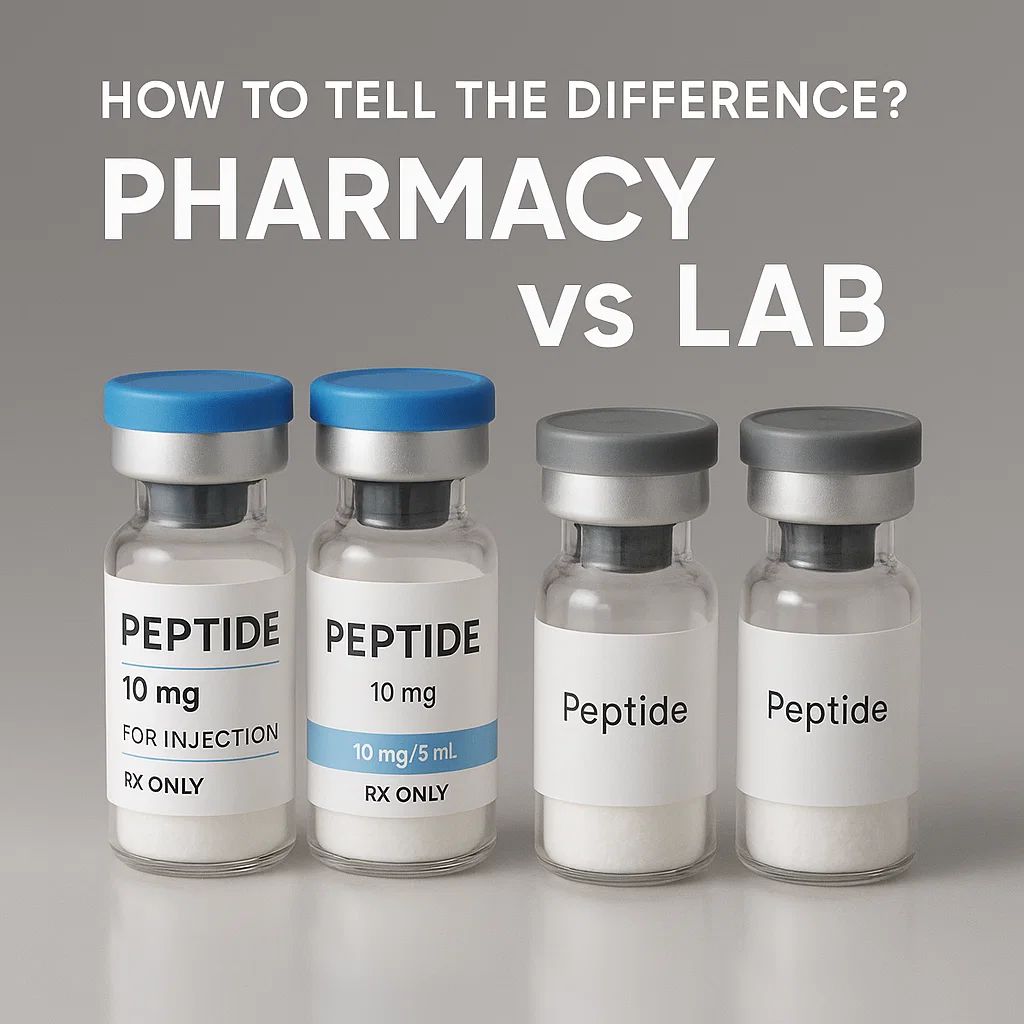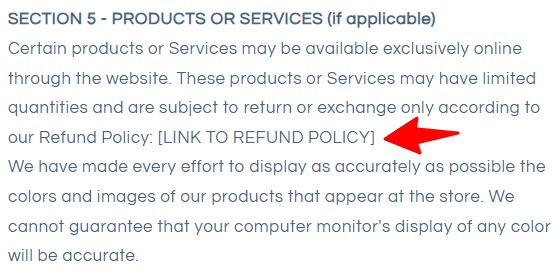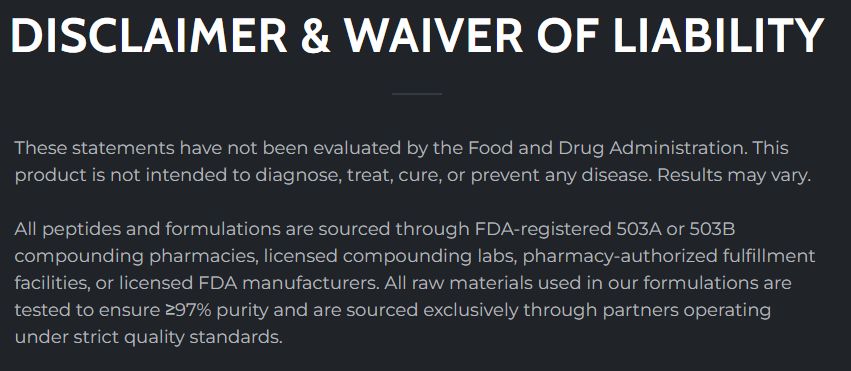Why Peptide Sourcing Matters
Not all peptide suppliers are the same. Some operate as legitimate 503a/503b compounding pharmacies, while others act as middlemen, resellers, or even grey-market labs. The difference impacts safety, compliance, and the legitimacy of the products you receive.
If a supplier does not state clearly that all peptides are sourced exclusively from FDA-regulated 503a or 503b pharmacies, there is no assurance of pharmacy-grade quality.
Note: Peptide research and safety are complex topics. Many practitioners use clinical lenses when applying peptide learnings to real-world scenarios. If you’re curious about how professionals interpret these research findings in practice, you’re welcome to reach out (see contact info below).

How to Research/Vet a Peptide Supplier
If you’re evaluating a peptide supplier or sourcing platform, here’s a practical checklist:
1. Contact Information
- Look for a phone number. No number = red flag.
- If a phone number exists, do a Google search for that phone number and see if any other websites or webpages exist that use that phone number. Are they other peptide lab websites? Is the number associated to any unrelated business? Or possibly a person directly? All potential warning signs.
- Check email addresses. A business-domain email ([email protected]) is more credible than [email protected].
- Watch for WhatsApp or Telegram-only contact. That’s a hallmark of grey-market suppliers.
2. Physical Address
- Is an address listed? If not, be cautious.
- Use Google Maps (switch to Satellite view) to check if the address is a real office. Warning signs: residential neighborhoods, empty lots, or office buildings with no suite number.
- If the address resolves to a Registered Agent service, the business may be hiding its true location.
3. Business Registration
- Confirm that the business name on the website is actually registered with the state.
- Review ownership details. Are the owners hiding behind anonymous filings?
- Use a Secretary of State business lookup to cross-check information.
4. Website Signals
- Run a Whois search. Recently created domains can be a red flag.
- Use the Wayback Machine (archive.org) to see if the site has changed names, addresses, or emails over time.
- Look for Privacy Policy, Terms of Service, and Refund/Return Policy. Missing policies indicate low credibility.
- Scan for sloppy copy-paste errors or broken links pointing to unrelated sites.

5. Sales Rep Verification
- If contacted by a “salesperson,” confirm they are legitimate:
- Ask them to email you from a company domain.
- Call the company directly and ask for them by name.
How Some Peptide Suppliers Try to Appear Legitimate
Suppliers that source from labs often use vague or misleading language to appear pharmacy-level. Common examples:
Blended sourcing statements
“All peptides and formulations are sourced through FDA-registered 503A/503B compounding pharmacies, licensed compounding labs, pharmacy-authorized fulfillment facilities, or FDA manufacturers.”
⚠️ Red flag: The inclusion of “licensed compounding labs” or “fulfillment facilities” means not everything comes from a pharmacy.

Vials with “use only” labels
“Clinic Use Only” or “Physician Use Only” or “Professional Use Only”
⚠️ Red flag: This language gives an appearance of legitimacy but does not prove pharmacy sourcing.
Legal disclaimers
“[Company] is not a compounding pharmacy or outsourcing facility as defined under 503a or 503b…”
⚠️ Red flag: They admit directly that they are not a pharmacy.
Overemphasis on ingredients and facilities
“We source only premium APIs from FDA-registered suppliers.”
“Prepared in state-of-the-art cleanrooms.”
⚠️ Red flag: Talking about ingredients and sterility does not guarantee pharmacy-level compounding.
Product & Platform Warning Signs
Beyond website and business details, the products themselves can reveal sourcing issues:
- Offers FDA-banned peptides → could be pharmacy-sourced, but less likely. More research needed.
- Sells custom experimental blends → pharmacies don’t usually do this; labs do.
- Uses vial labels like “For Research Only” or “Professional Use Only” → strong indicator of non-pharmacy sourcing.
- Products identical to those on known research lab sites → often a reseller or dropshipper.
How to Confirm Pharmacy Claims
- If a supplier claims to be a pharmacy, verify through the relevant state’s Board of Pharmacy license lookup tool.
- If they don’t appear there, they are not a licensed pharmacy.
Key Takeaway
To minimize legal exposure, peptide sourcing should be done via 503a or 503b compounding pharmacies. Anything less leaves the door open to research labs, resellers, and grey-market suppliers. By carefully vetting contact details, business registrations, site language, and product offerings, you can quickly separate true pharmacy providers from those trying to look like one.
Want more peptide research best practices?
This guide is intended for educational purposes and reflects research and industry discussion. If you have general questions, feedback, or would like to continue the conversation around peptide research and supplier evaluation, you’re welcome to reach out.
Contact:
Mike Schwarz
🔗 Facebook (for general discussion)
Thank you for helping keep this information available to the community!
